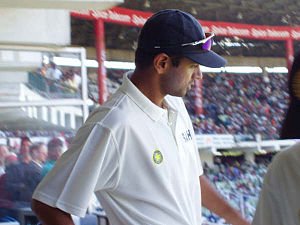IPL or Indian Premier League has established itself into one of the largest sporting extravaganzas in the world. There is little surprise though, that its origin lies in the modern home of world cricket, India. With a population of more than a billion and counting, cricket perhaps serves as the defining elixir of this great nation. IPL, presently in its sixth season, started in the year 2008 as the BCCI’s response to the challenge posed by Zee’s Indian Cricket League and is today valued in excess of 3 billion USD.
 |
| Players from the RCB team practice before their match |
IPL, this year, has been shrouded in controversies while at the same time the spectators have also been able to witness some fascinating sportsmanship and display of skills. Overall, it offers several key management lessons to budding managers.
Lesson 1: Teamwork holds the key
There’s no denying this fact. Success of teams like Sunrisers Hyderabad and Rajasthan Royals can be attributed to this. Almost no one expected them and in particular the Sunrisers to reach the playoffs. Playing and performing as a team and rejoicing each other’s success as a single entity has no parallel. An example from corporate life can be the success story of Amul which has today evolved itself from a cooperative society to become one of the most trusted and respected FMCG brands in the country.
Lesson 2: Founders sometimes get thrown out
What connects Lalit Modi and Steve Jobs? Both got thrown out from the ventures they created! Steve Jobs made a comeback and recreated or rather redefined the brand. Will Mr. Modi get a second chance? Highly unlikely !
Lesson 3: Individual brilliance will open the first door, but definitely not the last one.
Royal Challengers Bangalore (RCB) are the best example for this. Chris Gayle with his devastating batting ensured that RCB were in a comfortable position in the earlier part of the tournament. However, it just wasn’t enough as RCB became a collection of super talented individuals rather than becoming a feared team to reckon with. Groupon founder Andrew Mason is a prime example in this regard. Though he conceived the idea of his business, created its own unique model yet at the end of the day he was not brilliant enough to manage the business. Great teams produce great outcomes. Simple, right !
Lesson 4: Importance of one small step at a time
The importance of small steps to achieve a bigger goal should never be overlooked. The Chennai team captain M.S.Dhoni exemplifies this fact. You will rarely find him making big promises before any game, yet he delivers each time. In fact, he tries hard to avoid the press before any big game and makes only customary statements as the captain of the team, instead focussing all his time on improving the team strategy and his game. A corporate parallel can be drawn with Steve Jobs and his successor Tim Cook. You will rarely find Apple disclosing product details before a launch, and the launch takes the competitors by surprise !
Lesson 5: Only change is permanent
 |
| Shane Warne bowling for the Rajasthan Royals |
The old must always make way for the new. The IPL also saw cricketing legends like Shane Warne and Adam Gilchrist bid adieu to the game and make way for the next generation of cricketers. Each individual has a prime age beyond which he must step down and let the best playing team take the field. Holding on to positions on account of past performance is purely not acceptable either in sports or corporate arena. Even Microsoft founder Bill Gates decided to step down and let Steve Ballmer lead the company to the future. Same was the case with Jack Welch, arguably the best CEO ever.
Lesson 6: Spot the troubleshooters
Every team needs individuals who perform well under pressure. Chasing 70 runs in last 5 overs or performing with two days remaining for deadline involve the same set of skills. You need to identify such people in your team and give them additional project management responsibilities. You really need them in your team to win.
Lesson 7: Talent matters. Experience counts
While on one hand, team spirit matters in winning tournaments, individuals with exceptional talent can win games on their own. The experience of senior campaigners like Mike Hussey or fresh talent like Ajinkya Rahane are both critical in ensuring the team’s victory and creating a synergy. In a similar manner, the experience of the boss and the talented new recruit are both needed to ensure success in any company. In short, do not ignore the Mark Zuckerbergs in your team.
 |
| Rahul Dravid, the former captain of the Indian cricket team |
Lesson 8: Lead by example
Rahul Dravid has perhaps personified how a leader should be in leading a bunch of young raw talent and experienced cricketers and getting the best out of them. A leader commands far greater respect and loyalty when he himself contributes towards the team- Dravid has done precisely that. Mr. Ratan Tata did the same for Tata Group. Need I say more?
Lesson 9: Distractions are many, but remember the basics
Cheer girls, attractive anchors and expressive Bollywood actors not only grab the attention and headlines but also distract the audience and players from the real objective. The key then is to maintain focus on the game. On a slightly similar note, young professionals also lose their way once they get access to money and indulge in activities they prefer not being mentioned in public.
Lesson 10: Greed often brings loss
Former India bowler S Sreesanth and Wall-Street legend Mr. Rajat Gupta have a lot in common to share at this moment. Both achieved the pinnacle of their success before falling from grace. Moral of the story: If you cheat, it is only a matter of time before you get caught.
Lesson 11: Build a brand that can sustain falls
The spot fixing controversy has definitely dented the image of IPL, but can it bounce back? Apple did bounce back from 1996 onwards when it launched revolutionary products in the i-family and with the return of Steve Jobs at the helm of affairs. Even a corporate entity like Tata motors recalled thousands of Nano when an issue was detected in it. The path therefore is to accept the fault, rectify it and emerge better.
Will IPL be able to reclaim its brand image? Let us hope it does.



































It is a good read. Really insightful.